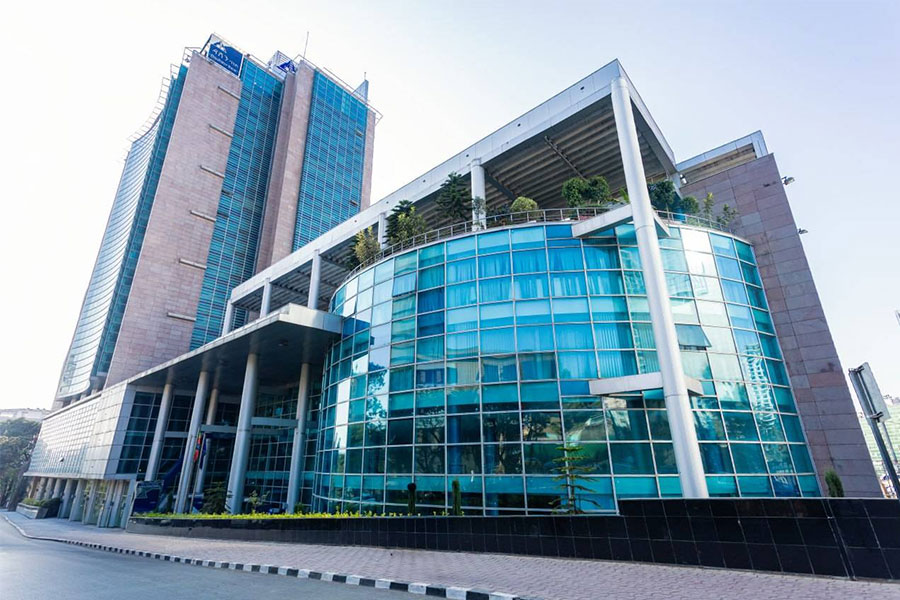
Radar | Oct 14,2023
Aug 22 , 2020
By GELILA SAMUEL ( FORTUNE STAFF WRITER
)
Ethiopia is set to receive close to 210 million dollars as the second disbursement of a three-billion-dollar programme with the International Monetary Fund (IMF), pending approval by its executive board. The funding, which is part of the financial package that was approved in December 2019, is expected to support the country's balance of payments.
This comes after the IMF and Ethiopian authorities reached a staff-level agreement for the first review of the Extended Credit Facility-Extended Fund Facility, lending given to correct medium-term balance of payments imbalances from structural impediments in the economy.
In its first review of the programme, the IMF staff estimates the economy's growth to have been considerably depressed in the fourth quarter of the last fiscal year and projects gradual recuperation to begin in late 2021 due to the impact of the Novel Coronavirus (COVID-19). Lawmakers in the country had approved a supplementary budget of 48.7 billion Br in May.
The IMF also approved the request of the Ethiopian government for 415 million dollars through the Rapid Financing Instrument without ex-post conditionality, conditions to be carried out after receiving the aid. The loan obtained through this facility will be paid back over 10 years at an interest rate of zero.
The IMF team recommended requesting additional debt rescheduling from external creditors to ease external debt service pressures. Ethiopia had received debt relief from the G-20 countries a few months ago as part of the support due to the shock of the pandemic. While acknowledging the need to deviate from macroeconomic reform objectives in the near term, the IMF advised resuming reform as the shock subsides.
Slowing down the growth of base money through the central bank starting from the second half of 2020 was also part of the recommendations. This is expected to help subdue the elevated inflation in the country, according to the presser from the IMF.
When the IMF programme was approved last year, the base money supply growth for the end of June 2020 was programmed to be 12.5pc year-on-year. However, as the pandemic struck, the base money supply picked up to reach close to 23pc at the end of June, as the central bank injected a significant amount of money to support the financial sector.
Headline inflation, an indicator of the cost of living, has been hovering above 20pc in the last five months, registering the highest rate in seven years. In June, the rate had shown a two-percentage-point rise reaching 21.6pc. Last month, food inflation registered a considerable three-percentage-point rise to 23.1pc, while non-food inflation recorded a slight increase of 0.7 percentage points to 19.7pc.
The IMF has also reiterated its advice to the government to transition the foreign exchange regime to that of a market-clearing (market-based) system in line with the central bank's roadmap. The central bank had devised a foreign exchange roadmap outlining the transition to a system, where the exchange rate will be determined on the basis of demand and supply. The role of the NBE will be intervening by buying and selling forex to stabilise the market.
Since the end of last year, the central bank has made covert moves to depreciate the currency without an official announcement. The last time the government made a sudden 15pc devaluation in 2017, the value of the Birr plummeted from 23.4 to 26.9 to the dollar. During this period, the NBE stated that the reason behind the devaluation of the Birr was to control inflationary pressure and increase export earnings.
The programme with the IMF does not guarantee any success in addressing the structural problem in the country, according to Atlaw Alemu (PhD), an associate professor of economics at Addis Abeba University's Faculty of Business & Economics.
"In addition, any kind of reform isn't favourable in this kind of global crisis as the impact of the pandemic is still unknown," Atlaw added.
The expert recommends the government take a step back and focus on the pertinent issue of the health sector in the country.
PUBLISHED ON
Aug 22,2020 [ VOL
21 , NO
1060]

Radar | Oct 14,2023

Commentaries | Dec 07,2019

Radar | May 18,2024

Radar | Jun 21,2025

Radar | Aug 12,2023

Editorial | Mar 11,2023

Radar | Aug 05,2023

Fortune News | May 31,2020

Radar | Dec 25,2021

Commentaries | Feb 06,2021

Dec 22 , 2024 . By TIZITA SHEWAFERAW
Charged with transforming colossal state-owned enterprises into modern and competitiv...

Aug 18 , 2024 . By AKSAH ITALO
Although predictable Yonas Zerihun's job in the ride-hailing service is not immune to...

Jul 28 , 2024 . By TIZITA SHEWAFERAW
Unhabitual, perhaps too many, Samuel Gebreyohannes, 38, used to occasionally enjoy a couple of beers at breakfast. However, he recently swit...

Jul 13 , 2024 . By AKSAH ITALO
Investors who rely on tractors, trucks, and field vehicles for commuting, transporting commodities, and f...

Oct 11 , 2025
Ladislas Farago, a roving Associated Press (AP) correspondent, arrived in Ethiopia in...

Oct 4 , 2025
Eyob Tekalegn (PhD) had been in the Governor's chair for only weeks when, on Septembe...

Sep 27 , 2025
Four years into an experiment with “shock therapy” in education, the national moo...

Sep 20 , 2025
Getachew Reda's return to the national stage was always going to stir attention. Once...